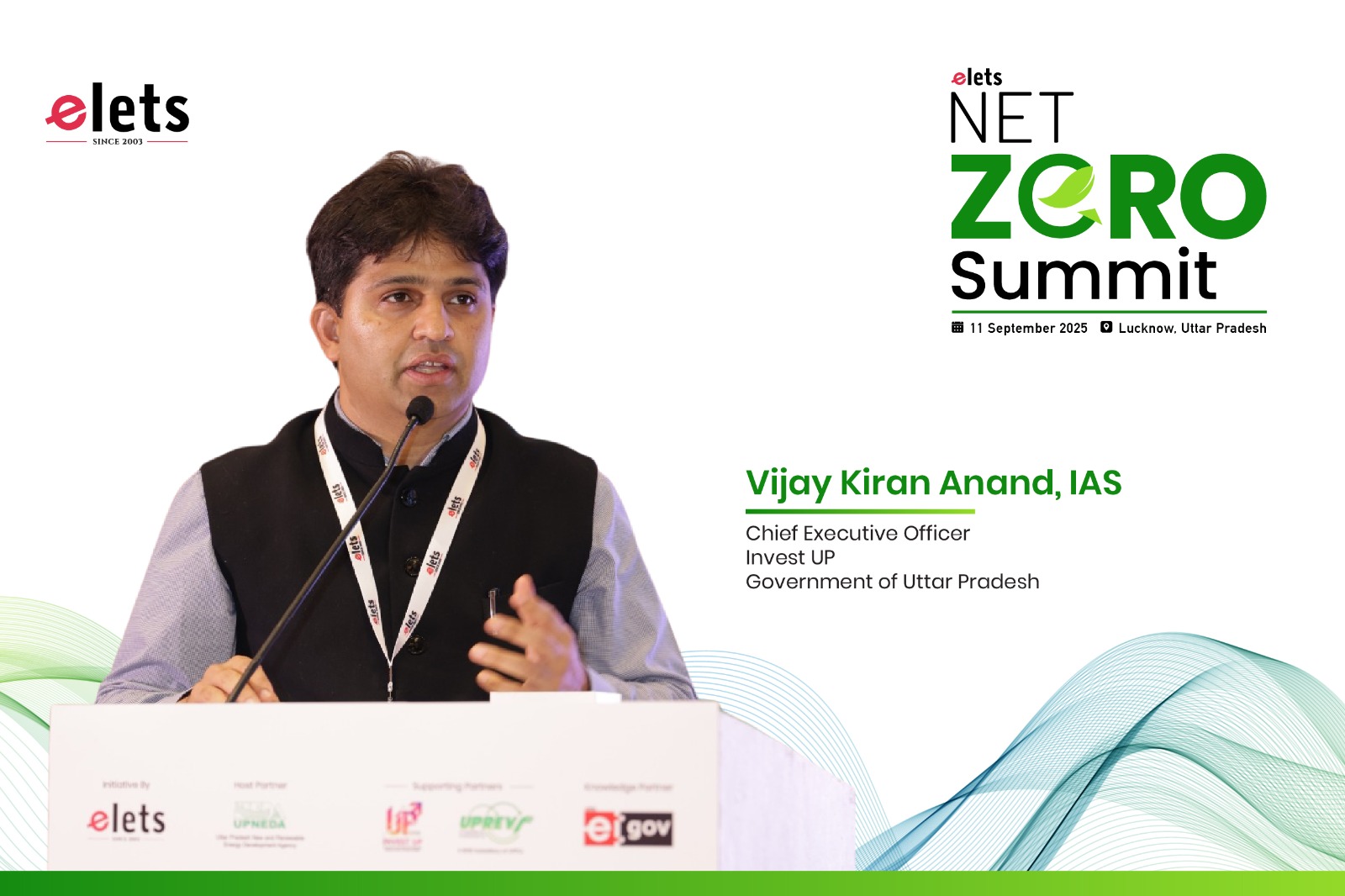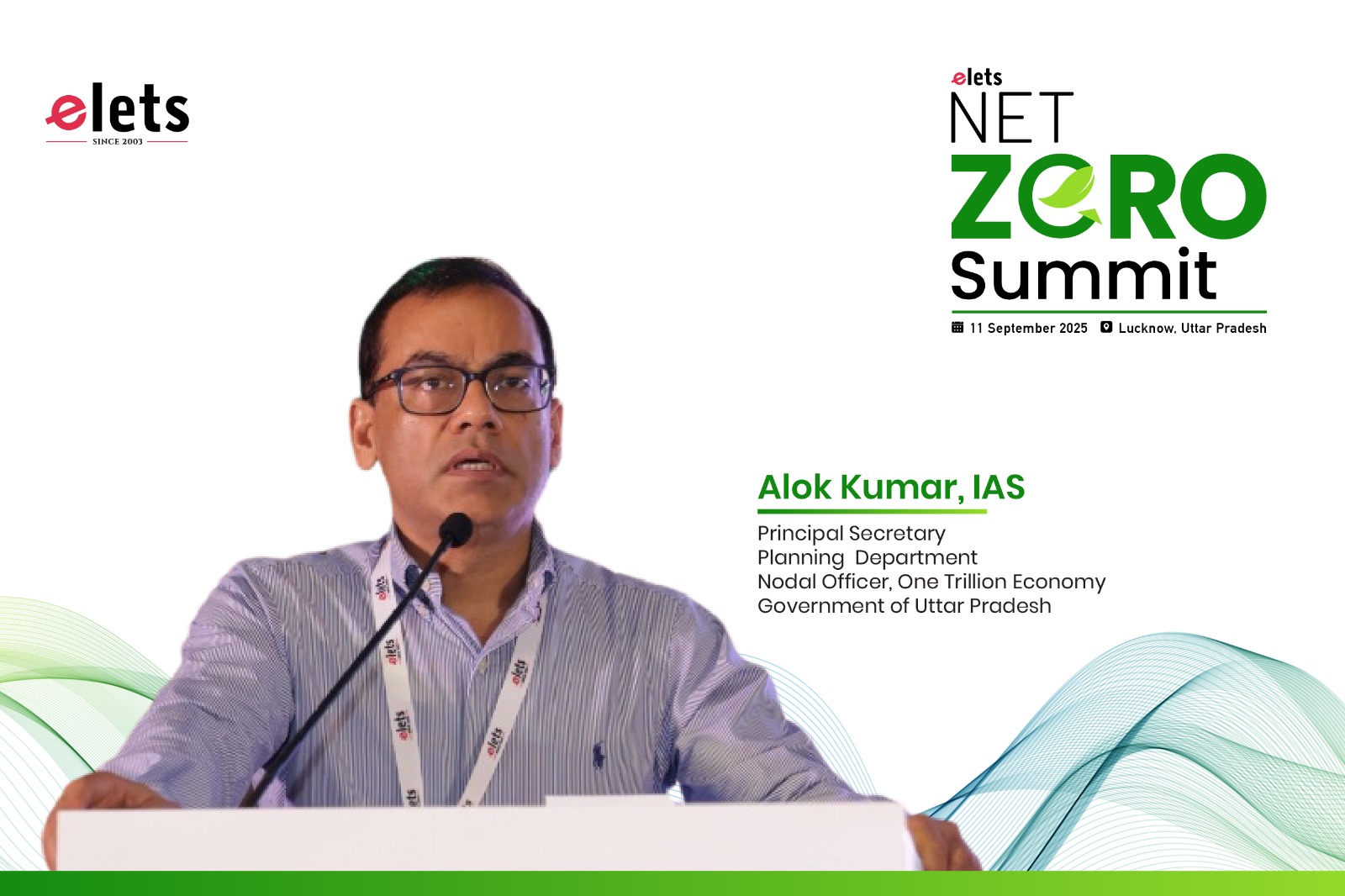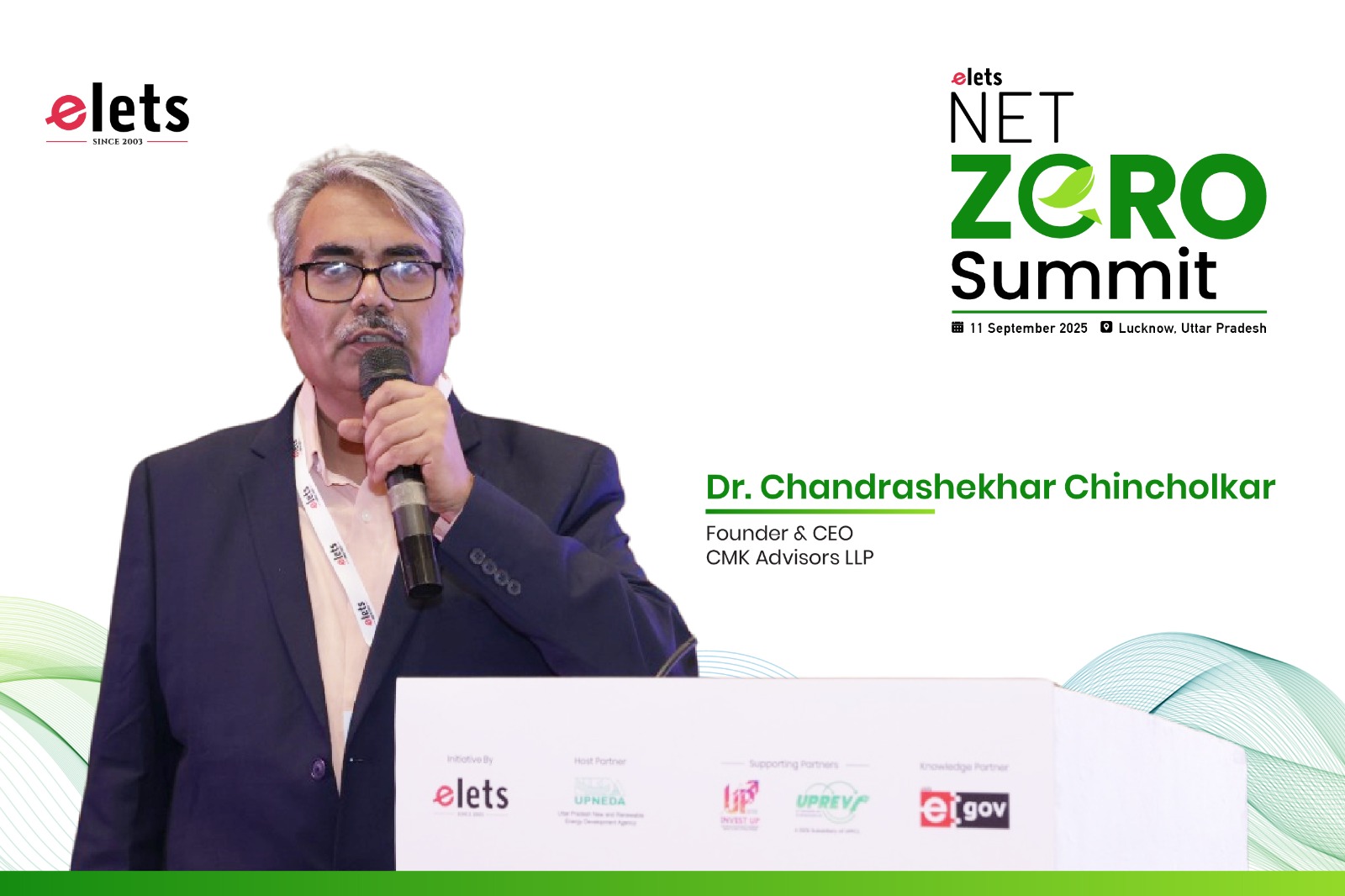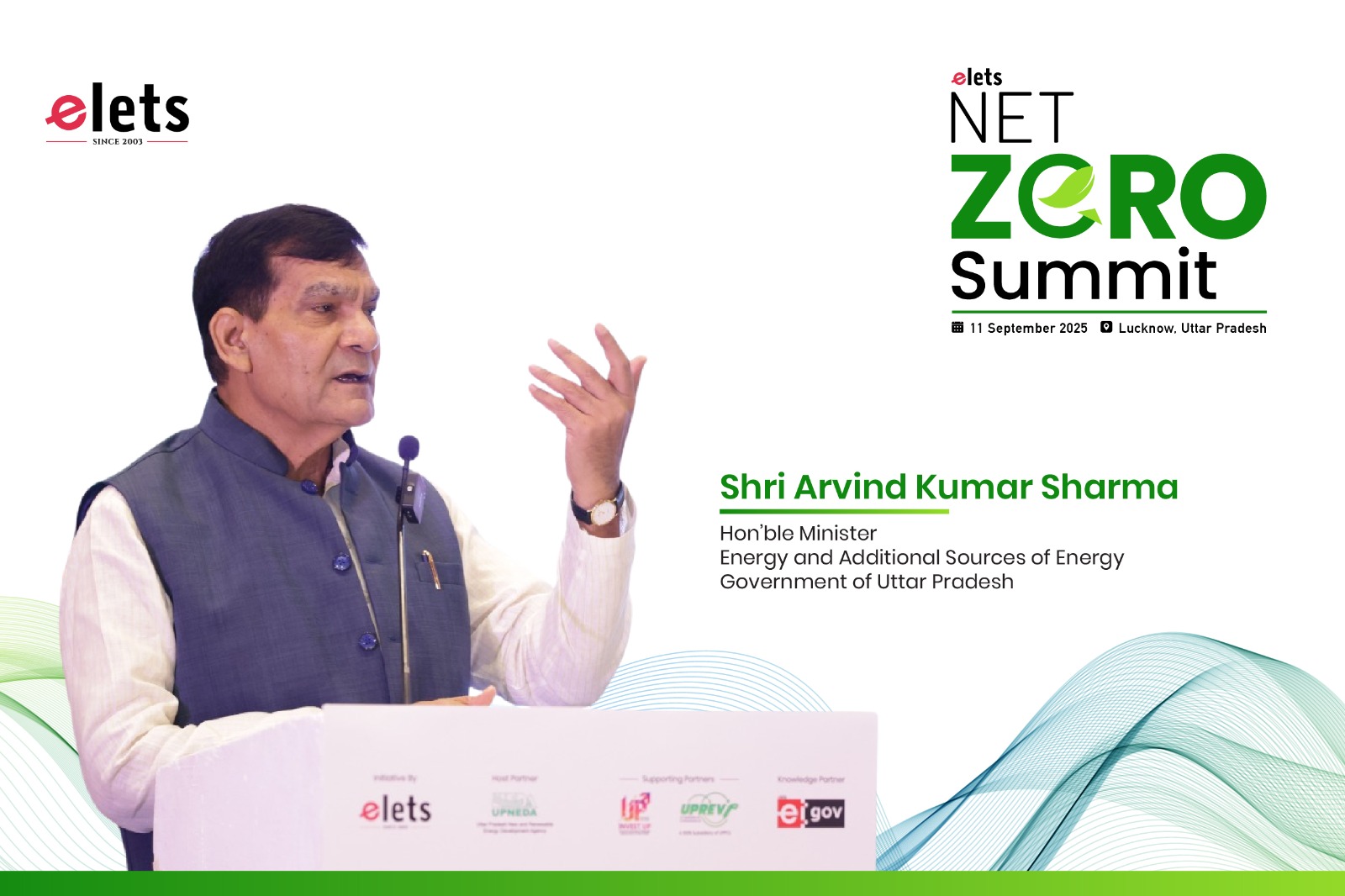
Agency for New and Renewable Energy Research and Technology (ANERT) is driving Kerala’s renewable energy transition with a 3,000 MW expansion program, green hydrogen pilots, and decentralized energy solutions. From solar and wind projects to grassroot collaborations under ‘Net Zero Carbon Kerala,’ ANERT is shaping a sustainable future. With strategic policies, industry partnerships, and local engagement, the agency is accelerating the state’s clean energy adoption, shares Narendra Nath Veluri, IFS, Chief Executive Officer, ANERT, Government of Kerala in an exclusive interview with Krishna Mishra of Elets News Network (ENN).
ANERT has been instrumental in Kerala’s renewable energy transition, completing 1,351 MW of solar projects over the last decade and launching a 3,000 MW renewable energy expansion program. What are the key priorities moving forward to accelerate renewable energy adoption?
ANERT is committed to scaling up Kerala’s renewable energy footprint through a multi-faceted approach:
- Expanding Solar Energy: With 1,351 MW of solar projects completed, Kerala continues to add 30-35 MW of on-grid solar installations each month. The 3,000 MW renewable energy expansion program focuses on rooftop, floating, and utility-scale solar projects to maximize solar capacity.
- Advancing Wind & Hybrid Energy Solutions: Kerala currently has 71.2 MW of installed wind energy capacity, with plans to expand it by 629 MW by FY30 and 1,794 MW by FY40. Offshore wind projects and hybrid solar-wind systems are also being explored to enhance energy reliability.
- Decentralized Renewable Energy: Encouraging communitybased and off-grid renewable solutions for rural and remote areas to ensure inclusive energy access.
- Strengthening Policy & Incentives: ANERT is working to make renewable energy adoption more financially viable through various incentives:
- Investment Incentives: A 10% incentive on fixed capital investment (up to ₹4 crore) disbursed in phases.
- SGST Reimbursement: 100% reimbursement on capital investment for five years for large and mega renewable energy projects.
- Electricity Duty Exemption: MSMEs receive a 100% exemption on electricity duty for five years, reducing operational costs.
- Solar Panel Installation Subsidy: Residential consumers can avail up to a 40% subsidy on rooftop solar panels, making solar energy more affordable.
With these strategic initiatives, ANERT is paving the way for a greener, more sustainable Kerala.
The ‘Net Zero Carbon Kerala’ initiative aims to engage local self-governing bodies in climate action. How is ANERT collaborating with them to promote renewable energy adoption at the grassroots level?
ANERT is actively partnering with local self-governing bodies to integrate renewable energy solutions into everyday life. Key areas of collaboration include:
- Solar-Powered Public Institutions: Facilitating solar panel installations on government buildings, universities, and local offices to make public infrastructure energy-efficient.
- Renewable Energy Awareness Programs: Organizing training sessions and outreach programs to educate communities about the benefits and practical applications of renewable energy.
- Decentralized Energy Solutions: Promoting microgrids, solar-powered streetlights, and community-based renewable energy projects for greater energy resilience.
- Financial Support & Policy Advocacy: Assisting local bodies in securing funding and implementing policies that align with net-zero targets.
Through these initiatives, ANERT is ensuring that Kerala’s clean energy transition is inclusive, effective, and sustainable at both urban and rural levels.
ANERT is spearheading various green hydrogen (GH2) pilot projects, including the development of a hydrogen cluster in Kerala. Could you provide insights into the project’s current status and its expected impact on the state’s renewable energy landscape?
The GH2 pilot projects in Kerala are progressing steadily, with a dedicated entity being formed to manage the initiative. We are currently in the process of securing funding, and our initial focus is on small-scale pilot projects tailored to Kerala’s unique needs and resources. These will serve as test beds for hydrogen-powered applications across different sectors, with plans to scale up based on their success.
Current Status
- ANERT is collaborating with research institutions and industries to develop hydrogen production, storage, and utilization technologies.
- Pilot projects are being launched in transportation and industrial applications to assess real-world feasibility.
- A 500 kW electrolyzer is being set up by Greenstat, capable of producing 50 kg of GH2 per day, with an annual production target of 20 tonnes.
- The total project cost is estimated at ₹133 crore.
Expected Impact
- Diversification of Energy Sources: The project aims to reduce Kerala’s reliance on coal-based power, potentially cutting CO2 emissions by 2,500 tons annually.
- Decarbonization of Industries: Green hydrogen will serve as a clean fuel alternative for transportation and manufacturing, with an estimated production capacity of 57 tonnes per annum.
- Economic Growth & Job Creation: The hydrogen economy is expected to generate 300 jobs across the value chain, with further employment opportunities as the initiative scales.
Also Read :- Kerala’s bold strategy for energy sustainability
Given Kerala’s diverse topography, what region-specific renewable energy solutions is ANERT exploring to harness the state’s full potential?
Kerala’s unique geographical diversity requires a tailored approach to renewable energy deployment. ANERT is implementing region-specific solutions to maximize efficiency:
- Water Bodies: Floating solar plants are being developed to optimize water surfaces for energy generation.
- High Altitude Regions: Wind power projects are being customized to leverage the strong winds in hilly areas.
- Urban Centers: Rooftop solar initiatives and decentralized energy solutions are being integrated into city infrastructure.
- Agricultural Zones: Solar-powered irrigation and biogas plants are being introduced to convert waste into energy.
- Coastal Areas: Offshore wind farms and wave energy projects are under exploration to tap into Kerala’s vast coastal potential.
By adopting a location-specific strategy, ANERT aims to enhance Kerala’s renewable energy capacity while ensuring sustainability and efficiency.
How is ANERT engaging with academic institutions and industry partners to foster research and development in emerging renewable energy sectors?
Collaboration with academia and industry is crucial for driving innovation in the renewable energy sector. ANERT is actively working with multiple stakeholders to accelerate research and skill development.
- University Partnerships: We are working closely with IITs, NITs, and state universities to develop cutting-edge renewable energy technologies. Additionally, discussions are underway with universities in Australia and the Netherlands for technical collaboration and upskilling initiatives.
- Industry Collaborations: ANERT is engaging with private companies and government organizations for joint R&D in areas like battery storage, hydrogen fuel cells, and smart grid technologies.
- Startup & Entrepreneur Support: We actively support home-grown startups developing innovative renewable energy solutions.
- Training & Skill Development: ANERT is establishing a Centre of Excellence for Renewable Energy, alongside conducting workshops and certification programs to create a skilled workforce for the sector.
Through these partnerships, ANERT aims to position Kerala as a hub for innovation in sustainable energy technologies.
Be a part of Elets Collaborative Initiatives. Join Us for Upcoming Events and explore business opportunities. Like us on Facebook , connect with us on LinkedIn and follow us on Twitter, Instagram.
"Exciting news! Elets technomedia is now on WhatsApp Channels Subscribe today by clicking the link and stay updated with the latest insights!" Click here!













